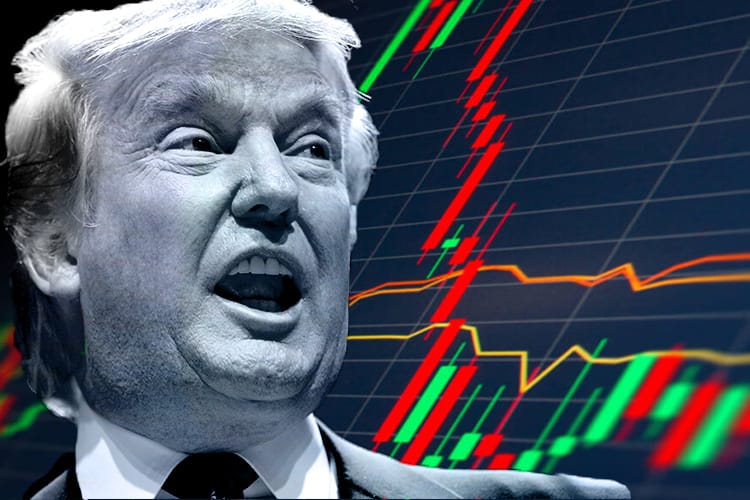As the world grapples with how to respond to the dramatic twists and turns of the second Trump administration, River Effra Expert Panel Member, Radd Seiger shares his insights into negotiating directly with President Trump.
Radd: Over the past few weeks, I have been inundated with questions about whether meaningful negotiation with the new US administration is possible and, above all, how best to deal with the man at the top.
As a retired US lawyer and specialist communicator based in the UK for more than 30 years, I have handled complex legal and business challenges alongside diplomats and corporate leaders on both sides of the Atlantic. With a fundamental reset of global trade rules underway, they all now recognise, whatever their personal views, they need to adapt to a new reality fast.
My direct experience with President Trump came through a personal connection to the family of Harry Dunn, the motorcyclist killed by the wife of a US agent who then claimed diplomatic immunity. Months of navigating his first administration, constantly anticipating wild twists and turns came to a head in a heated – but ultimately successful – exchange in the Oval Office that changed the course of the case and had a profound effect on UK-US relations.
So how do you negotiate with President Trump and his administration?
First, business leaders must always have front of mind that Trump and those around him are discerning negotiators, not career politicians. Therefore, business leaders must understand there are new rules of engagement and consider how best to play by them. Do not assume that behind the cameras, previous power structures remain in place.
Next, companies and diplomats must prepare to engage directly and act at speed. Disruption to traditional trade routes will present risks for sure, but also opportunities that should be explored in unconventional ways. Long-standing protocols now hold no weight so CEOs must be unafraid to cut through red tape and forge direct channels with US policymakers. After a career operating at a steady pace through established channels, this can feel uncomfortable, but being ready to act rapidly, leveraging personal relationships and, if necessary, high-profile media narratives, will likely help to secure favourable terms.
Don’t fall for the idea that you can’t plan. For all the talk of chaos, the administration’s underlying direction of travel is clear. Leaders must be ready to respond to radical policy announcements rapidly. This means planning early for the unexpected and be prepared to push for accelerated adjustments that benefit both sides.
Whether they admit it or not, most leaders also – albeit often unconsciously – like risk to be, well, predictable, focussed on the most likely scenarios with an accompanying, but equally predictable mitigation. Now they need to think differently.
As it actively creates disorienting negotiation environments, the second Trump administration has shown itself capable of extraordinary pivots. What happens if it closes airspace to airlines that don’t buy new aircraft from Boeing? Or, what if it seals its ports to ships registered in countries that maintain high tariffs towards the US? Risks that seemed impossible a few months ago now look almost probable.
Businesses need to understand and prepare for exposure to operational scenarios that didn’t feature on last year’s risk register. ExCos must not wave away risks linked to paradigm policy shifts as too fanciful. Nor can they leave them in the PR response box. They must explore them and every potential consequence seriously.
And, if you make it to the top – what then? The exchange I had with President Trump in the Oval Office with Harry Dunn’s parents demonstrated that bold, direct negotiation can work – even with someone as ostensibly unpredictable as the current US President.
It might not be apparent in all of the media theatrics but Trump and those around him understand and respect those who stick by their principles. He can be persuaded, as he was when it became clear I was standing up for what I believed was right.
Behind the scenes, he also appreciates quiet force of personality. As his officials lost their cool, realising that they were not going to get what they wanted, we knew that if we maintained our composure, we could prevail. By not blinking we made it clear that our case was as strong as his.
Finally, with deep ties to both the UK and US, I firmly believe that no other two countries are as closely aligned and co-dependent. Trump and those around him know the UK is not ‘just another market or security partner’, it is a gateway to European finance, innovation and luxury – all critical to maintaining the US’ competitive edge.
Any analysis of how to engage with the Trump administration, for business or indeed government, should start with a clear articulation of mutual benefits. Trump may appear unpredictable, but in person he made clear to me that he has an acute awareness of the UK’s importance as a trusted ally and economic partner. Business is core to that relationship. Industries such as professional services, defence, technology, and luxury goods, where the UK excels, are indispensable to the US economy. By framing their sector as vital to American competitiveness, security and growth, British companies can negotiate from a position of strength.
Leaders must play to this, keep cool and look Trump and his people squarely in the eye – that is the only way to win.
——–
If you’d like to hear more from Radd on how to engage with the new Trump administration, please contact us at .
Find out more about our Expert Panel Members here.
Thank you for reading. For more insights please visit our blogs directory and insights page.

